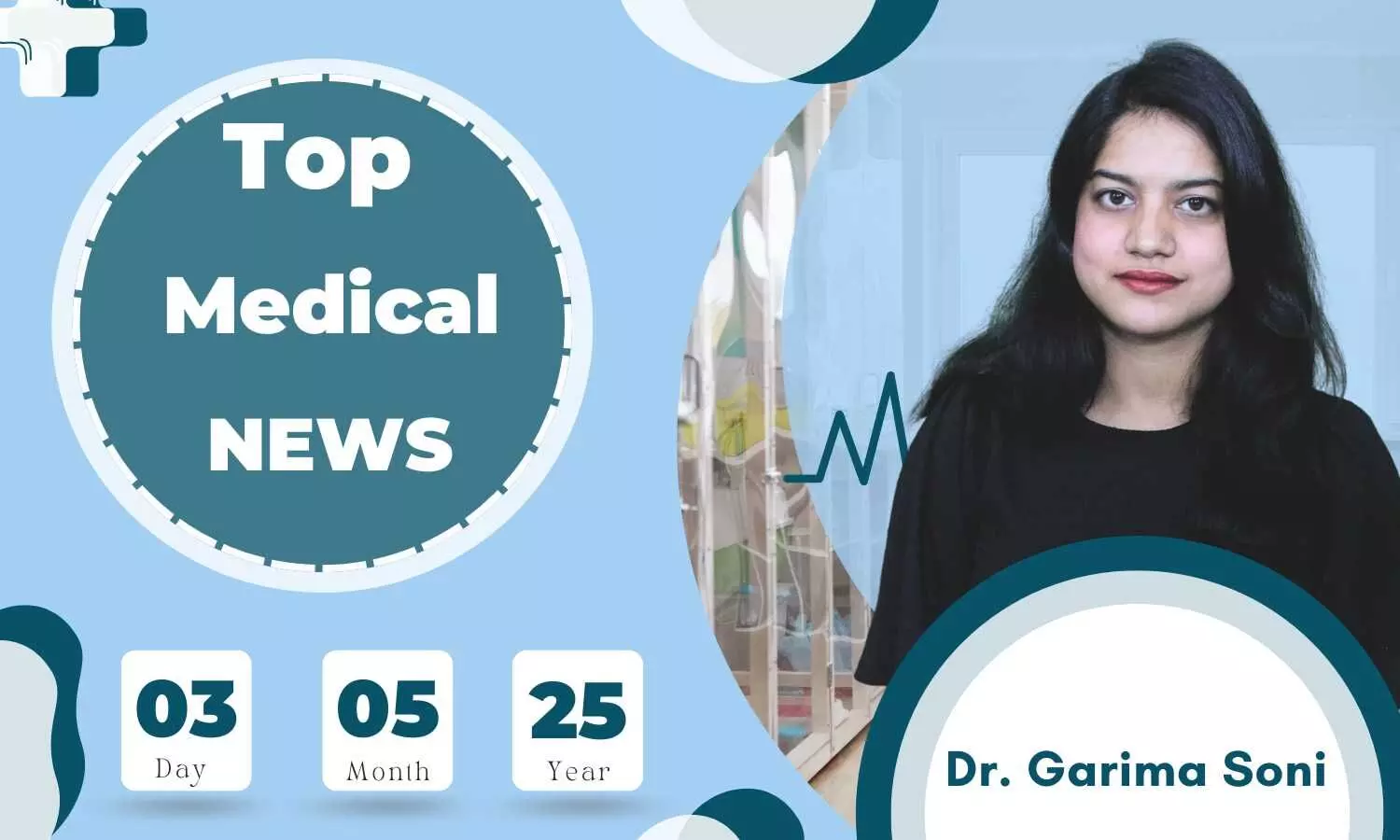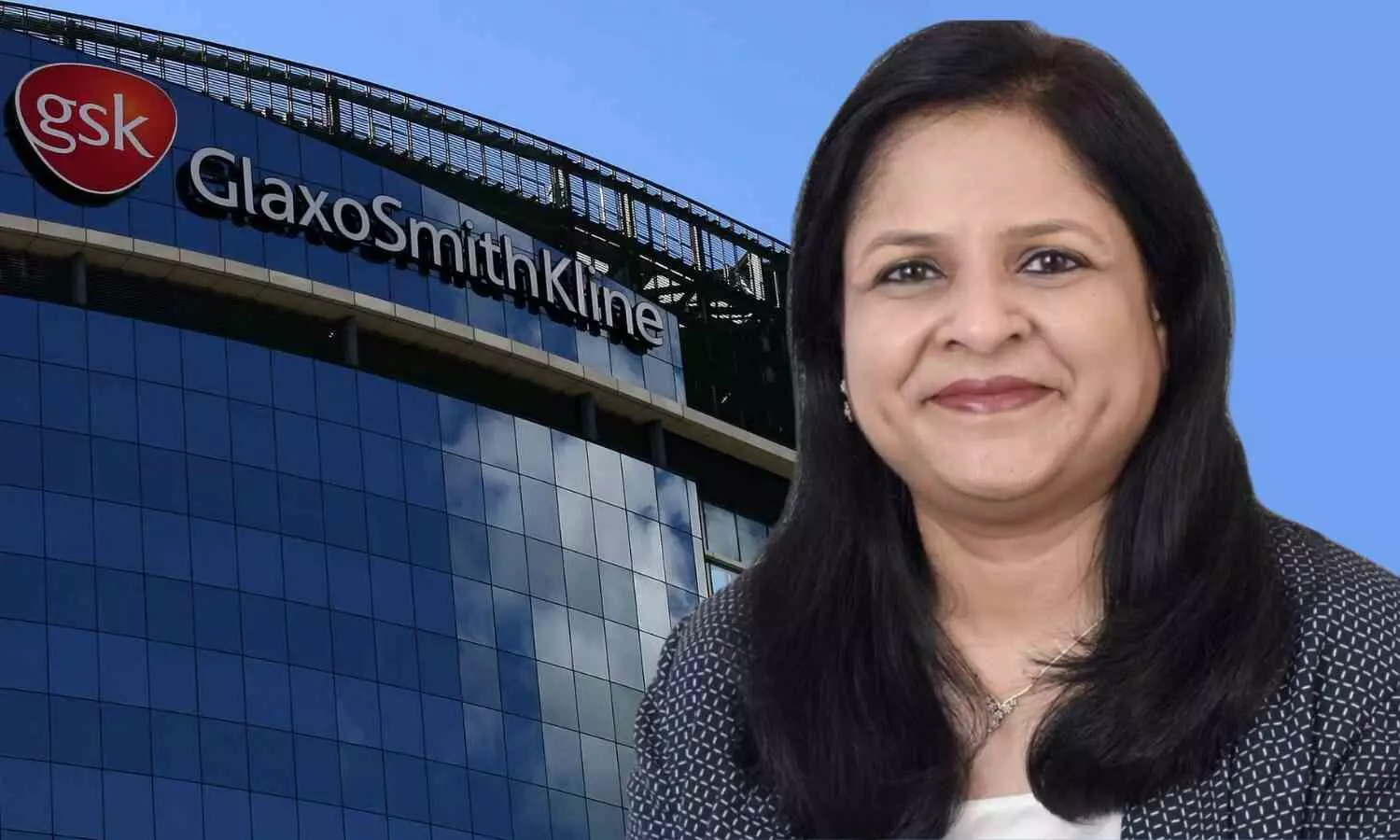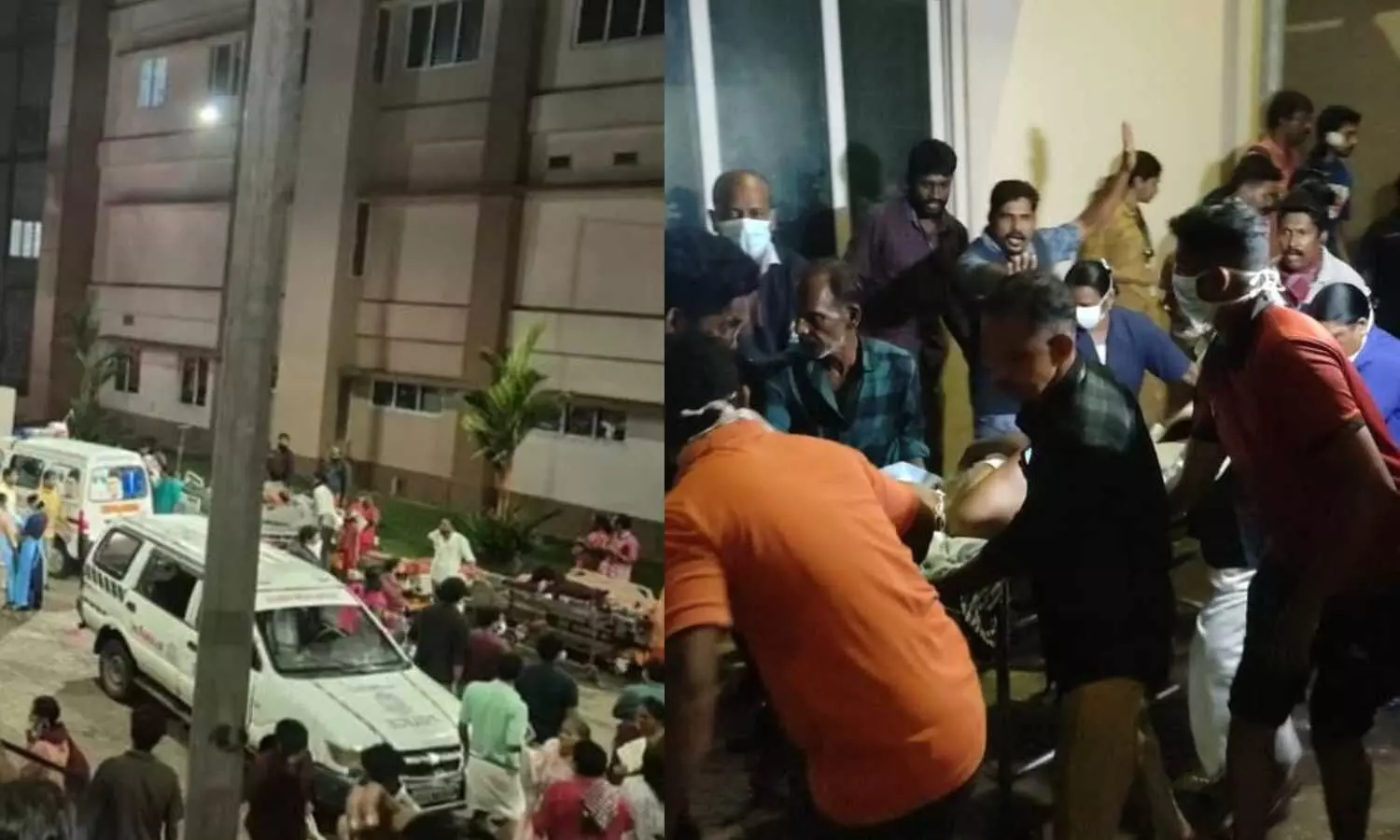Medical Bulletin 03/ May/ 2025

Here are the top medical news for the day:
Powered by WPeMatico

Here are the top medical news for the day:
Powered by WPeMatico

Srinagar: In a positive development aimed at improving healthcare access, the Jammu and Kashmir Health and Family Welfare Department has appointed 103 Medical Officers to District and Sub-District Hospitals located in remote and underserved regions of the union territory.
Health Minister Sakina Itoo confirmed the appointments on the social media platform ‘X’ (formerly Twitter), stating, “Pleased to announce the appointment of 103 Medical Officers across J&K, strategically deployed to strengthen healthcare in remote and underserved areas. Specialists are being posted to DHs and SDHs to enhance service delivery. A step forward in building a healthier J&K.”
The decision has been met with widespread appreciation from both the medical community and the general public. They thanked the Minister for making the move as it will improve healthcare access for people living in remote parts of J&K.
Also read- 70 Faculty Posts Vacant: AIIMS Jammu invites J&K doctors to return from abroad
A user who commented under the Minister’s post said, “This was much needed and truly commendable! This move will surely benefit the common people, especially in remote areas! A real step forward for equitable healthcare access in J&K!”
“This is a truly commendable initiative. I humbly request that similar attention be given to the appointment of Dental Surgeons to strengthen oral healthcare services across J&K,” said a doctor.
Another user said, “Ma’am this is truely a game-changer for J&K’s healthcare! With 103 new Medical Officers deployed in remote areas, the region is on track for a healthier, stronger future. Strategic, impactful and exactly what’s needed.”
Medical Dialogues had previously reported that Kashmir’s healthcare infrastructure seems to be struggling with operational challenges, with over 1,800 positions of Assistant Surgeons and Paramedics currently lying vacant. Health and Medical Education Minister Sakina Itoo informed the Legislative Assembly.
While responding to queries raised by MLA Dr Shafi Ahmad Wani over the availability of healthcare professionals, the Minister revealed that 270 posts of Assistant Surgeons and 1,590 posts of paramedics remain unfilled in the Kashmir Division.
“Out of the total sanctioned strength of 1,736 Assistant Surgeons, 1,466 are in position and 270 are lying vacant in Kashmir. Regarding paramedical staff, out of the 4,218 sanctioned strength, 2,628 are in position and 1,590 are vacant,” said Itoo.
Also read- 270 Assistant Surgeon, 1,590 Paramedics posts vacant in Kashmir: Minister
Powered by WPeMatico
Powered by WPeMatico
Powered by WPeMatico
Powered by WPeMatico
Powered by WPeMatico
Powered by WPeMatico

GlaxoSmithKline Pharmaceuticals Limited has announced that Sukanya Choudhury, Executive Vice President – Regulatory Affairs has taken a
secondment role as Regulatory Head, Growth Emerging Markets for period of 16 months with
effect from 1st May 2025.
Pursuant to her secondment, she will also cease to be the Senior
Management Personnel of the Company effective the same date.
Choudhury has had a distinguished career with GSK, which she joined in 2007 as Senior Manager – Regulatory Affairs. Over the years, she rose through the ranks, becoming General Manager – Regulatory Affairs in 2013, and later promoted to Vice President – Regulatory Affairs in 2016.
She began her professional journey with East India Pharmaceutical Works Ltd in 1998, and went on to hold roles at Alembic Pharmaceuticals, Eli Lilly, and Boston Scientific.
Powered by WPeMatico

Kozhikode: Four patients died and around 200 others were evacuated from the Kozhikode Medical College Hospital (KMCH) on Friday, after a fire and heavy smoke filled the casualty ward. The incident occurred after an explosion, reportedly caused by a short circuit from the UPS installed in the room.
There was panic as a large amount of smoke and fire was seen coming out from the Super speciality block of the Kozhikode Medical College hospital (KMCH) on Friday, officials said.
The fire seen in the UPS room of the casualty ward in the block led to the evacuation of around 200 patients from several wards of the six-story building, but there were no reports of any casualty or injury.
Hospital Superintendent Dr Sreejayan said an explosion was reported late in the evening inside the CT Scan room, due to suspected short circuit from the UPS installed in the room. Following this, a large amount of smoke was seen, news agency UNI reported.
The incident occurred around 8 p.m., when staff noticed smoke emerging from the UPS storage area. Authorities quickly began shifting patients from the affected ward as a precaution.
As per a media report in the ETV Bharat, Dr Sajith Kumar, the Principal of the Medical College, said that the four patients who died were already in critical condition, and their deaths were not due to smoke inhalation. He said, “Two of the patients were newly admitted to the hospital on Friday afternoon, one with advanced cancer and another with liver cirrhosis, while the other two were also in serious condition.”
Fire brigade personnel and police rushed to the spot, doused the fire and evacuated the patients, quickly bringing the situation under control.
All hospital equipment was also shifted to a nearby hospital.
Dr Sreejayan said no casualty or injury was reported. There was power failure for some time following this incident.
Around 200 patients from the causality were shifted to the nearby hospitals, including the main building of the Kozhikode Medical College by ambulance.
Fire brigade personnel said an explosion occurred in the UPS room, due to a short circuit.
Also Read:Kerala Nursing Student breathes last 3 Months after suicide attempt
Powered by WPeMatico

New Delhi: The IMA Hospital Board of India, representing over 40,000 private healthcare establishments across the country, has voiced reservations regarding the Insurance Regulatory and Development Authority of India’s (IRDAI) proposal for Common Empanelment of hospitals.
While the board welcomed the move to streamline hospital empanelment and promote wider access to cashless treatment under health insurance plans, it raised several key concerns that must be addressed to ensure fairness and sustainability.
The board stressed that empanelment under any government or insurance scheme should remain entirely voluntary. It warned that imposing mandatory compliance without involving hospitals who are the central stakeholders in healthcare delivery, could have detrimental consequences for the sector.
Talking to Medical Dialogues, Dr. K.M. Abul Hasan, Chairman of Indian Medical Association (IMA) Hospital Board of India stated, “As far as the issue of reservations regarding mandatory common empanelment for cashless treatments from January 2025 is concerned, one must remember about the small and medium hospitals, where the owner often handle the facility single handedly, especially those situated in rural areas. They often had to arrange money and go through a lot of hardship to keep the facilities running, imposing insurance on them can not be beneficial, and they might end up closing the clinics. Then people in remote areas will find it difficult to access healthcare.”
“We can only allow such imposition when there is a uniform package rate for all the hospitals; While deciding on the package rate, everything should be taken into consideration, one cannot apply a common package rate on every hospital. If this happens, small clinics will cease to survive. 80% of the beds available in our country are in small and medium hospitals, and they usually decide rates that will be affordable to the local people. If empanelment under any government or insurance scheme is made mandatory, the package rates should be decided after discussing with us.” A major point of contention is the absence of scientific cost assessments behind the treatment rates set by insurers and government programs. The IMA Hospital Board reiterated its long-standing demand for pricing based on robust and transparent costing studies.
The association also demanded that the National Health Authority (NHA) must actively involve the IMA Hospital Board to finalize rates and packages for empanelment under insurance and government schemes. “Hospitals, despite being central to healthcare delivery, have not been consulted on critical insurance sector issues, rendering many establishments financially unsustainable. The medical fraternity’s voice remains sidelined in policy decisions,” the hospital stated in a press release.
In addition, the IMA Hospital Board expressed concerns over the viability of the ‘Cashless Everywhere’ model in the absence of scientifically determined tariffs. The association pointed out that implementing cashless treatment without scientifically determined rates is unsustainable. The current model, where claims depend on insurer guidelines, perpetuates bias against hospitals and patients, threatening the viability of clinical establishments. As an alternative, the board recommended reinforcing the reimbursement framework, suggesting that it could offer a more practical and sustainable path forward. It called upon IRDAI to initiate structured consultations with the IMA Hospital Board before proceeding further with the implementation of the Common Empanelment initiative. The Board concluded that only meaningful engagement with all stakeholders can ensure a well-balanced, equitable, and enduring healthcare system in India.
Powered by WPeMatico
